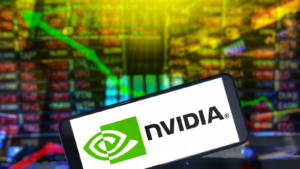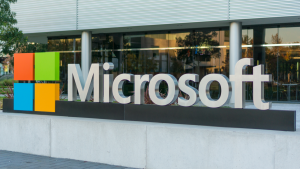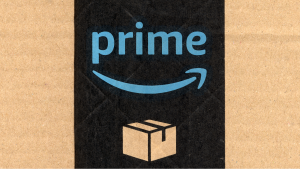Certain stocks have surged this year, with hyper-growth tech companies seeing some of the biggest gains. The three companies listed below have highlighted what momentum can mean for sustained moves higher, even though these stocks are all down at least 10% from their all-time highs, at the time of writing.
Many investors question whether this kind of discount is enough to justify investing in these names. Personally, I believe that another 10%-15% correction from these levels would be a more appropriate level to step in. But that’s just me.
Those who haven’t picked up the following stocks on last year’s massive selloff have been disappointed. Let’s dive into these hyper-growth stocks, and the reasons they remain buys on any significant dips from here.
Nvidia (NVDA)

Nvidia (NASDAQ:NVDA) is a dominant player in the world of AI stocks, with strong performance and earnings. Its leadership in AI is evident, ensuring its significance even beyond the AI trend. Recent earnings surpassed expectations, both in revenue and guidance, reflecting robust management and performance.
Bank of America’s (NYSE:BAC) Vivek Arya maintains Nvidia as a top sector pick, despite its impressive 209% year-to-date stock rally. Arya reiterates a “buy” rating and $550 price target, foreseeing 22% potential upside in NVDA stock. While Nvidia drives AI with its GPU accelerators, Arya expects a shift towards scaling supply to meet demand in a period of execution.
Moreover, Nvidia has shown strong performance, staying above its 50 and 200-day moving averages. As of April 2023, NVIDIA holds about $11.0 billion debt, similar to the previous year. The balance sheet shows $7.26 billion short-term and $12.7 billion long-term liabilities, but also $15.3 billion cash and $4.08 billion receivables within a year. Though liabilities slightly surpass cash and receivables, NVIDIA seems well-balanced and not heavily burdened by debt.
Microsoft (MSFT)

Bulls remain optimistic about Microsoft (NASDAQ:MSFT) due to its strong presence in key growth sectors like cloud, AI, cybersecurity, and gaming. CEO Satya Nadella highlights ongoing innovation for future gains.
Microsoft exceeded Q2 earnings estimates, reporting an EPS of $2.69 (above the expected $2.55) and revenue of $56.19 billion (surpassing the anticipated $55.47 billion). However, the stock declined 4% due to disappointing revenue guidance.
Microsoft stands out as an exceptional business, with last quarter’s gross profit reaching $39 billion, up from $35 billion. Its operating income surged to $24 billion, making up a remarkable 43% of sales, surpassing Apple’s and Amazon’s margins. Microsoft offers exposure to upcoming tech trends and robust sales and cash flow.
Amazon (AMZN)

Amazon (NASDAQ:AMZN), once known solely as an e-commerce business, has grown into a tech giant, both celebrated and criticized for its impact on small businesses.
JPMorgan Chase (NYSE:JPM), led by billionaire Jamie Dimon, acquired $1.9 billion worth of AMZN shares in Q2, contributing to the $26.44 billion total value purchased by all investors during the same period.
Amazon’s business-to-business e-commerce sector, Amazon Business, is rapidly growing with a $35 billion yearly gross sales rate and over 6 million customers. Furthermore, the company provides free same-day or one-day delivery for U.S. Prime members on popular items, which could lead to increased share gains from physical retailers over time.
Amazon Web Services (AWS) is vital for Amazon’s future, leading in cloud infrastructure with AI innovations like Trainium and Inferentia. AWS aims to make AI accessible to all. Amazon expands into healthcare, grocery, and stores, with promising growth in Amazon Pharmacy, Amazon Fresh, and Whole Foods. Prioritizing customer experience and value, events like Prime Day foster loyalty.
On the date of publication, Chris MacDonald has a LONG position in AMZN. The opinions expressed in this article are those of the writer, subject to the InvestorPlace.com Publishing Guidelines.
